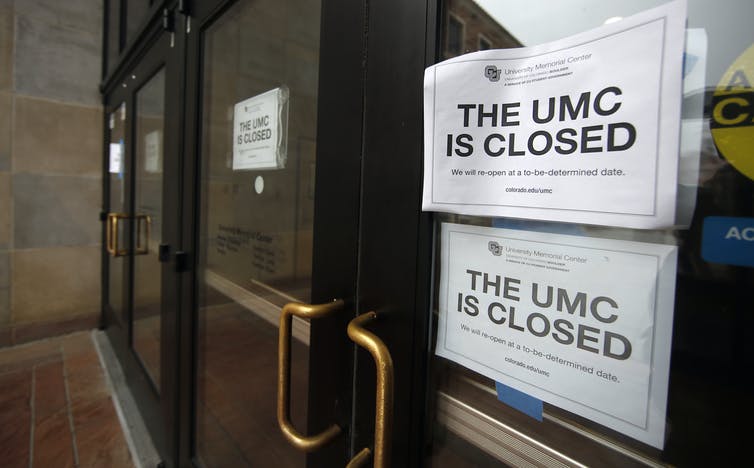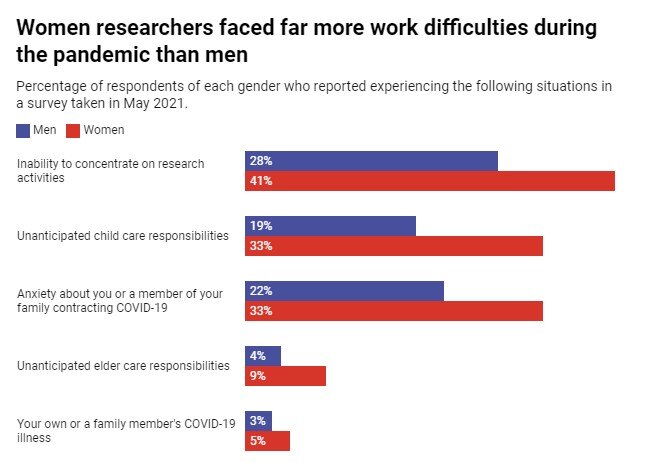On March 6, 2020, universities across the U.S. announced systematic laboratory closures, social distancing policies and travel bans to cope with the growing coronavirus epidemic. These actions, while prudent and necessary, had immediate negative impacts on the academic enterprise of science in the U.S. and around the world.
We are a team of researchers who study the role of science and technology in society. We are also part of a collaborative, multi-university project, called SciOPS, that seeks to improve how scientists communicate with the public. As the pandemic wore on, researchers began telling us about the work stoppages, data losses and other hardships they were experiencing. We felt this was important information, so we conducted two surveys to understand how the pandemic was affecting researchers.
The pandemic’s hardships in academia have been widespread and lasting, but our analyses revealed that female and early career scientists faced more negative impacts than other groups. These differences are likely aggravating already existing disparities and potentially altering career trajectories. The negative outcomes may last well beyond the end of the pandemic.
A survey of researchers
The SciOPS team conducted its first COVID-19 survey in May 2020, with a follow-up exactly a year later in May 2021. For each, we invited faculty from a random sample of 21 U.S. research universities who work in biology, engineering and biochemistry to participate in the study, and about 300 scientists responded each time. Through a series of multiple choice and open-ended questions, the surveys asked how researchers had been affected both professionally and personally by the pandemic.

Closures of schools and labs forced many scientists to work from home.
AP Photo/David Zalubowski
How the coronavirus disrupted science
Our first survey found that disruptions at work and home negatively affected research activities for a vast majority of the scientists who responded.
On the research side, 93% of respondents experienced university shutdowns and 88% faced lab work disruptions. Over 80% dealt with conference cancellations and travel restrictions. Some researchers also had to quickly adapt to financial issues, and this, along with other hurdles, saw many scientists delaying data collection, applying for timeline extensions or ending data collection early.
Challenges at home also affected scientists’ work. Roughly 80% of respondents said they were unable to concentrate on research activities, 72% had anxiety about contracting COVID-19 and 36% had to manage unexpected child care responsibilities.
The May 2021 survey showed that a year later, not much had changed. Responses were nearly identical: 92% of scientists reported difficulties from university closures, 89% experienced lab work disruptions and 84% had collaboration disruptions that had interrupted their research over the past year.



